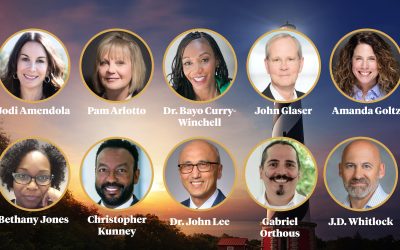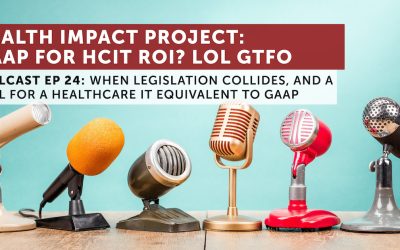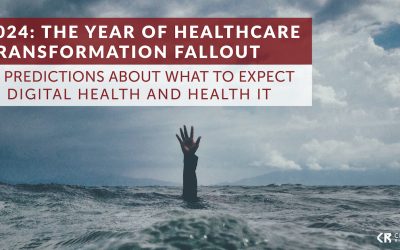
Microsoft hosted my trip, asking me to assist them tonight with a private function where I’ll be leading discussions on new consumer engagement models for Pharma – should lead to some interesting conversations tonight. Will report on the event I’m sitting in on. Won’t be consistent, just the highlights, or at least till power is drained.
11:00 Back to the event. Right now, we have Dr. Michael Roizen on stage. Dr. Roizen is the Chief Wellness Officer and Chairman of the new “Wellness Institute” at Cleveland Clinic. Premise of his presentation: Two revolutions in health:
- Genomics and stem cells
- Your understandings of your body
All leading to personalized medicine.
Quick side note: Heard tail end of Forrester IT Analyst, Josh Bernoff’s presentation. While it did not do much for me, others may find it useful – some interesting stats. You’ll find his presentation on the Forrester site.
Dr. Roizen is author of “RealAge” series of books and the web property RealAge.com. I’m sure you have seen their banner ads (web property now owned by media conglomerate, Hearst). RealAge algorithm based on some pretty simple self-entered metrics. Biggest determinant is stress level. Get that under control and you can get a boost of up to 32yrs. Another interesting factoid contributing to life extension, sex, which can give you a 16yr boost. For men, it is quantity of sex, For women, quality of sex.
Roizen argues that the genes we inherit, will giving us a propensity for a given disease, are not a guarantee, not by a long shot. Colon, breast and prostrate coancer can be controlled by a significant degree, simply by our lifestyle, e.g., a 30min walk each day (20min continuous) will drop chance of getting prostrate cancer by 33%.
Claiming that the industry (physicians, pharma, etc.) has failed consumers, failed patients in educating them on how to better take care of themselves and what exactly are the consequences of consumers’ health decisions. You have to Live to health. Big promoter of educating the public – the whole objective of the Wellness Institute.
Hmm, like this guy, just stated something I have been ranting about for sometime now, we need to make the learning of healthy behaviors and the conducting of such fun and enjoyable! Closed with argument that health costs projections will literally break the bank on US competitiveness. To stay competitive as a nation, must drive down acute illness costs.
Maybe Obama should recruit this guy for a senior position in the administration. He’d get my vote for Surgeon General.
Now have a panel session which really seems like nothing more than a long RealAge commercial. Ughh.
3:20 After long break, back at ePharma for the comScore presentation.
With the down economy, comScore is seeing even a bigger move online with advertising/marketing budgets. Perception is that online is cheaper, more effective, more targeted. Stated that 2009 could be a break-out year for online pharma marketing. Audience must love hearing that. Looks like WebMD is sitting on a gold mind – they are focusing all their energies/resources on the pharma market. They read that well.
Some quick online marketing stats from pharma:
- Media/advertising referral: Prospect uplift: 8%, Existing customer/adherence uplift: 25%
- Search/SEO: Prospect uplift: 12%, Existing customer/adherence uplift: 23%
- Direct visit to Brand’s site: Prospect uplift: 17%, Existing customer/adherence uplift: 27%
Bottom-line figures from comScore, the ROI on an advertising campaign in Pharma was 4.75:1 – HUGE ROI! Generated a lot of surprise, comments and Q&A.
comScore has really done nothing in mHealth tracking, widgets or Social Media/networks.
5:00 and its time for the final panel which is basically building on the marketing hype cycle of Web 2.0 (Health 2.0) to talking about Web 3.0 (Health 3.0). Some interesting panelist with Grad Conn from Microsoft, JD Klienke of former Omnimedix, now Mt. Tabor (Mt. Tabor is doing a lot of behind the scenes work for Google Health) and Peter Frishauf, founder of Medscape and now Chairman of CROSSIX.
JD is giving an overview/history lesson of past fears in the online world that were all overcome with the upsides. More information, while it can be misused/dangerous, is in the grand scheme of things, good. Benefits far outweigh detriments and fears. JD is big proponent of consumer empowerment and believing that true adoption of EMRs by physicians will not occur until consumers demand it, which by extension he states:
“The PHR dog will wag the EMR tail”
JD believes that more progressive practices will get on-board with HIT and look to capture those customers demanding an e-Relationship, others will fade into the distance or simply hang up their white coats and retire.
Grad Conn is now up and he’s in a punchy mood. Quite refreshing after this long day of ho hum presentations. Grad characterizes Web 1.0 answers a simple question, e.g., Why is my back sore? It was about understanding. Now is talking about Kamal’s company, TrialX.org Perfect company to talk about in front of all these pharma companies as TrialX is focused on clinical trial recruitment. Gave demo of TrialX doing a quick search, based on one’s PHR – a lot of ooo’s and aaa’s from this pharma crowd.
Grad went on to mention that TrialX is not only on HealthVault but also Google Health. He used this point as a segway to discuss what is most critical, to make heatlh data secure, but portable, following-on with the comment that HealthVault and Google are looking to enable consumers to move their data from one repository to another.
Grad just claimed that both they and Google Health have subscriber numbers in excess of 6 figures. Surprisingly, then again maybe not, Grad is taking a lot of cheap shots at Google. States all in good fun but reminds me of the old saying… Many a truth is said in jest.
Grad now talking about the MS approach, portrays it as a platform, whereas he claims Google is taking a more application approach. Some truth to that statement, but he is over-reaching and it can not be explained that simply. Both are based on Cloud Computing models, both are platforms plays with repositories and SDKs for the developer community. They are both platforms and what we are increasingly referring to as Health Clouds.
While Grad did a great job of wrapping up the day, delivering a message that will keep the audience thinking for some time to come, this session left me puzzeled: I still did not know what they really meant by the term Health 3.0. Maybe it’s semantic interoperability, maybe it’s data liquidity or maybe it’s just another marketing term to keep the fires burning. Doing a Google search on the term you’ll get 5,530 hits, but you won;t get much clarity there either. For now, let’s keep the hype down and just look to deliver on the promises of delivering consumers applications that they will find value in, or instructive and hey, let’s throw a liitle fun in there as well.
Grad demonstrated what fun can do for a crowd that has sat through a long day of presentations – he made the learning fun. He made the audience engaged. Now, if we can just figure out how to package that in a Health Cloud construct and the applications it supports, then we will really be getting somewhere. With that we’d like to propose the following:
Let’s have Health 3.0 not be so much about uber-techie terms that most who mention them do not understand. No, let’s redefine Health 3.0 as applications and services that create environments which consumers truly enjoy, value, and use and maybe, just maybe, we’ll begin to see the behavioral changes needed to truly revolutionize healthcare in America.




0 Comments
Trackbacks/Pingbacks